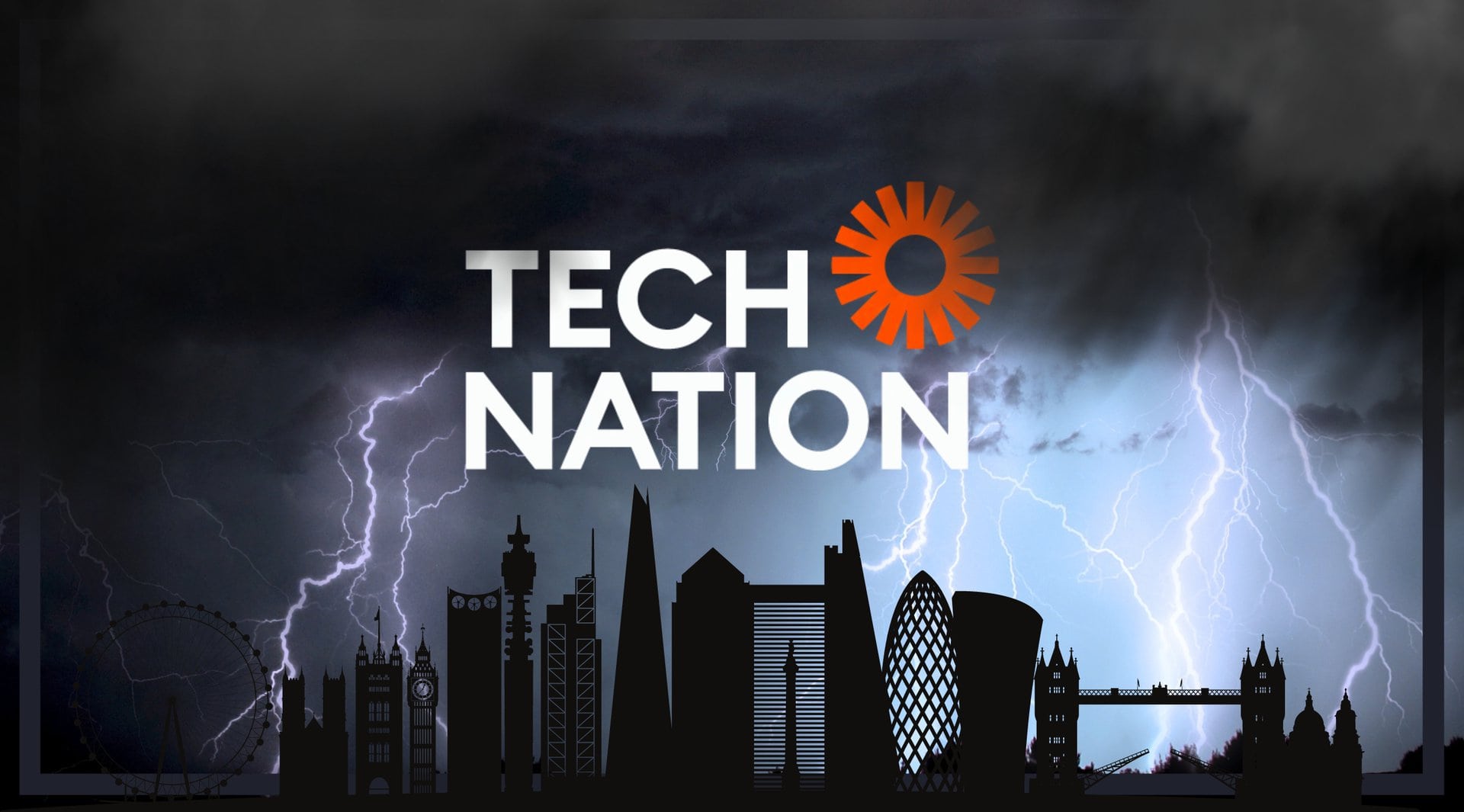The recent announcement that the UK government is to withdraw £12 million in funding from Tech Nation, and that the tech ecosystem will therefore close, has been met with upset but also complete confusion. Not only because of its impressive track record, but also due to where the £12million in funding is now going to: Barclays Eagle Labs.
Founded ten years ago under the coalition in a bid to help the UK to become further established within the tech sector, Tech Nation has supported a multitude of successful start ups including Monzo, Revolut, JustEat, Deliveroo, and Starling.
The not-for-profit company’s record is quite phenomenal in not only helping start-ups but also benefiting the UKs economy. Statistics show that, from every £1 of taxpayers money spent on Tech Nation, there was £15 return of investment (ROI) back. In addition, statistics have shown 80% of start-ups fail within their first two to five years; however, over 95% of startups on Tech Nation’s growth programmes have gone on to scale. 40% of all tech unicorns and decacorns created in the UK have graduated from a Tech Nation growth programme, collectively raising over £28.1bn so far in venture capital and capital markets.
This all adds further confusion as to why the Department for Digital, Culture, Media, and Sport (DCMS) has moved the funding to Barclays Eagle Lab. The Sunday Times reported DCMS stated Tech Nation was in breach of state aid rules after failing to become “self-sufficient.” This much looks to be true: Tech Nation has had to close its doors after the retraction of government funding, which it claimed made up 62% of its funding. Other sponsorships were not enough to sustain the business.
I’ve had multiple innovation consulting jobs for multiple corporations and there are few worse ideas than giving £12m to a FTSE100 company to accelerate U.K. #startups.
— Andrew J Scott 🐧 (@andrewjscott) September 25, 2022
More proof @DCMS understands little about technology or entreprenuership. https://t.co/hSxKu6qLm7
After the withdrawal, Tech Nation released a statement on their website saying: “Tech Nation is actively seeking interested parties to acquire its portfolio of assets to take forward in a new guise.
“In anticipation of the Government’s decision to award the Digital Growth Grant to another party, we have been working around the clock to secure our future and continue delivering for UK scaleups. It is essential that any route forward for Tech Nation ensures we are able to continue to act in the best interest of the tech community and put the needs of scaleups front and center. This is the principle that has always guided us, and will guide our decision making over the next steps we take from here.”
Perhaps the Government were waiting for the statistics to slip, which they did in 2022, to initiate a change. Global venture capital (VC) was scaled back in 2022 with VC investments dropping 32% globally. In the UK, VC investment dropped by 28% from $42bn to $30bn. It is important to note, however, that VC investment jumped up $20bn from 2020 to 2021 globally and in the UK. Some degree of scaling down after this huge jump is expected after the high increase of VC in 2021.
Tech Nation’s 2022 report showed a Unicorn winter, with new unicorns becoming rare again after the hike up in 2020 and 2021. No doubt these stats were used as evidence to move the funding. But the question still remains: why is £12 million of taxpayers money going to a bank which makes billions of pounds in annual profits? And is there an inherent conflict of interest in giving a global bank the power to nurture the country’s fintech ecosystem?
“We have supported Tech Nation since 2017 to accelerate the growth of startups and scaleups across the UK,” A DCMS spokesperson told Disruption Banking. “Our decision to make the Digital Growth Grant competitive brings the funding into line with the majority of government grants. Barclays Eagle Labs was successful because their application represented the best value for taxpayers’ money, will benefit the most startups and scale-ups over the next two years, and was scored highest by an independent panel.”
Another government statement on the issue says: “the Barclays Eagle Labs bid represented the best value for taxpayers’ money as the full grant will be allocated to supporting the UK tech ecosystem, with Eagle Labs absorbing all operational and people costs associated with delivering the programme of activity.”
This report lifts the lid on UK #tech – 4th in the world for global #tech #investment (with over 20x the #VC investment of 10 years ago!), valued at almost $1tn (more than 17x its value 10 years ago!) and employs nearly 5mn people in the UK today 🙌 https://t.co/KXpAwPVfG5
— Stephen Kelly (@SKellyCEO) May 26, 2022
However, Barclays’ history of support for start-ups is disputable. When the UK’s competition watchdog mandated nine banks to share their transaction data through the Open Banking initiative, Barclays was reported as “dragging its feet” in sharing the data. Some have argued this is evidence of Barclays’ lack of innovation and thus poses the question as to why they are now running the UK’s fintech ecosystem. One fintech investor commented: “Them (Barclays) running a fintech programme seems unacceptable if they’re fundamentally opposed to that innovation”.
Another question which arises is is this just a recruitment scheme to get more start-ups to set up their business account with Barclays? A quote from Amanda Allen Director of Barclays Eagle Labs on Gov.com states: “Through the Digital Growth Grant, we’re excited to double down to reach more businesses across the country with our best-in-class business growth programmes and bespoke regional support.”
Tanya Suarez, founder & CEO of IoT Tribe, commented on a LinkedIn post: “Surely this provides an unfair advantage and could be used to influence the founders choice of banker at several stages of growth. I wouldn’t be happy if I were any other UK high street bank or other financial institution that has been supporting founders over the years. Let’s not forget Barclays had a net operating income of £22 billion in 2021 and profits of £7 billion. If they really wanted to do this, they should carved out a minute amount of that to cover the £5-6M a year that they will receive… I don’t believe they need grant money to do it.”
It is not that the grant should just go to TechNation and maybe a reassessment of where the £12 million was going was a just decision, however it is where the grant is being moved to which is most concerning and how this choice will affect the fintech industry especially as popularity in digital banks has grown.
As now the funding has been moved to Barclays Eagles, it remains to be seen if and how Barclays follows through with supporting fintech start-ups. One element of this is whether they will force UK fintech to become inward-looking within Barclays, or whether they will leverage the knowledge and expertise of Barclays’ competitors. On the Tech Nation website, Starling CEO Anne Boden is thanked for “expert insights into regional ecosystems across the UK.” Will Barclays Eagle Labs invite leading fintech figures like Anne Boden to aid in its programmes?
Already it seems Barclays are keen to break away from supporting Tech Nation mentors, who have had considerable success in scaling hundreds of UK start-ups. After the £12 million funding was withdrawn, Tech Nation stated they “initiated TUPE discussions with Barclays Bank.” TUPE is designed to protect the employees of companies when a company is taken over by another company. Sky News reported that Barclays was resisting the TUPE, leading Tech Nation to seek legal advice. The question is why would Barclays not want the mentors who helped scale up multiple successful businesses?
Barclays embroiled in TUPE row over Tech Nation employees https://t.co/xx1u2PmUbV
— Sky News (@SkyNews) February 10, 2023
The FinTech industry is growing rapidly with digital banks proving themselves efficient and receiving top customer user reviews. In 2022, the Competition and Markets Authority survey showed that digital banks Starling and Monzo scored considerably higher than high street banks for customer satisfaction and business banking.
Tech Nation supported the flourishing of multiple start-ups and through its work has benefited the UK economy. The not-for-profit delivered and is perhaps reflective of a period of time where innovation was celebrated to grow capital for the whole economy. Thus we wait in anticipation to see whether Barclays will be able to follow suit without hidden agendas and hopefully continue in supporting start-ups from all backgrounds.
Author: Bronwen Latham
#TechNation #Barclays #UKGovernment #Tech #Fintech















